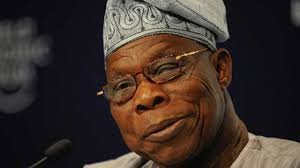ABUBAKAR YUNUSA, ABUJA
The Supreme Court has scheduled judgment for January 13 next year for hearing in the appeal by the family of former Military Head of State, General Sani Abacha seeking to stop moves to reopen the criminal forfeiture proceedings against the ex-Head of State and some members of his family over their alleged complicity in the looting of the nation’s treasury during Abacha’s administration.
A five-member panel of the apex court chose the date after lawyers to parties, including Dr Reuben Atabo (SAN), for the Abacha family, made their final submissions and adopted their briefs.
The appeal marked: SC/641/2013 was filed by the eldest surviving son of the late Abacha, Mohammed and his brother, Abba (for themselves and on behalf of the family of Gen. Abacha).
Listed as respondents are the Attorney General of the Federation (AGF), the Inspector General of Police (IGP), DCP P. Y. Hana (Chairman, Special Investigation Panel), the National Security Adviser (NSS) and Magistrate Sonja Nachbaur (of the Principality of Liechtenstein).
The appeal is against the July 25, 2013 judgment by the Court of Appeal, Kaduna which affirmed the judgment given by the Federal High Court in Kaduna on June 26, 2009 rejecting a suit by the Abacha family on the grounds of lack of locus standi (the legal capacity to approach the court on the subject matter of the suit).
The President Olusegun Obasanjo administration in 1999 made allegations of criminal misappropriation of funds against the late Gen. Abacha, members of his family and some companies linked with them.
Based on the allegations, the then AGF, acting on behalf of the federal government, made a request to the government of the Principality of Liechtenstein for mutual assistance and to initiate criminal proceedings of forfeiture against members of the Abacha family and companies in which they have interests.
At a point in the proceedings before the Princely Court of Liechtenstein, the government of Liechtenstein requested the relocation of the court sitting to the office of the National Security Adviser (NSA) in Nigeria to enable Magistrate Sonja Nachbaur take further evidence from some identified Nigerian witnesses.
Following Nigerian government ‘s granting of the request for the proceedings to be moved to Nigeria, DCP P. Y. Gana issued summons to witnesses to appear before Magistrate Nachbaur (a Magistrate of the Principality of Liechtenstein), who was to sit as a court in the territory of Nigeria.
Members of the Abacha family subsequently sued at the Federal High Court, Kaduna to among others, challenge the permission granted by the Nigerian government allowing a foreign judge to conduct proceedings in the office of Nigeria’s NSA.
They argued among others that by the provision of Section 6 of the Constitution, the judicial powers vested in courts in Nigeria do not extend to judicial officers outside the territory of Niger, including Magistrate Nachbaur, who is a judicial officer from a foreign jurisdiction of Liechtenstein.
They prayed the court to restrain the defendants and their agents from proceeding with the conduct of the criminal forfeiture proceedings in Nigeria and to issue an order of perpetual injunction restraining Magistrate Nachbaur and her agents “from exercising judicial functions within the territory of Nigeria, particularly in respect of the criminal proceedings against the Abacha family.”
In its judgment on June 26, 2009 the Federal High Court, Kaduna upheld the defendants’ objection and dismissed the suit on the grounds that the plaintiff lacked the locus standi, a decision that the Abacha family challenged at the Court of Appeal in Kaduna.
The Court of Appeal, Kaduna in its judgment on July 25, 2013 affirmed the earlier decision of the Federal High Court, promoting the Abacha family to approach the Supreme Court.
Arguing the appellants’ case before the Supreme Court on October 18, Atabo faulted the concurrent findings of the two lower courts, insisting that his clients have established substantial interest in the subject matter of the case to be clothed with the necessary locus standi to sue.
Atabo argued that the two lower courts failed to effectively evaluate his clients’ evidence, which informed why the courts reached a wrong conclusion that the plaintiff’s/appellants lacked the locus standi to filed the suit.
He urged the court to hold among others, that his clients’ suit “was not instituted merely because criminal allegations were made against the companies of the appellants’ father, rather the action was instituted to stop the forfeiture proceedings against the Abacha family,” Atabo said.
He prayed the court to allow the appeal, set aside the judgment of the Court of Appeal and grant all the reliefs as contained in the suit originally filed before the Federal High Court.
Lawyers to the AGF, IGP and other respondents in the appeal prayed the court to reject the appeal and affirm the concurrent decisions of the two lower courts.




















